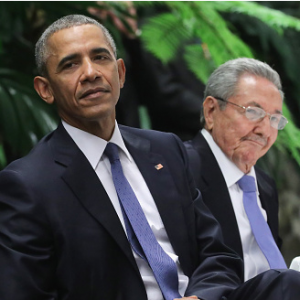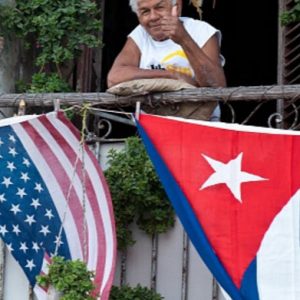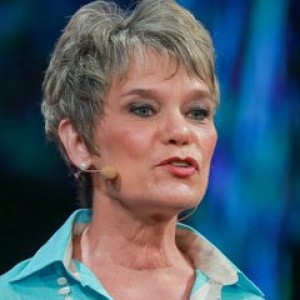Human Rights & Reconciliation U.S. – Cuba Relations
A Big Step Forward
Cuba | United States | 2002 - 2016
In December 2014, more than 50 years after the United States and Cuba had severed their ties, the two countries re-established commercial and diplomatic relations. The policy change followed stepped up advocacy efforts that Atlantic and partner funders had been supporting since 2013 to normalize relations between the two countries. Atlantic, which had been making public health related grants in Cuba since 2002, timed its relatively modest $1.4 million investment to take advantage of what proved to be a correct reading of the political will to begin a new chapter in U.S.-Cuba relations.
What We Learned From This Work
A relatively small, but highly focused investment, when targeted to the groups best positioned to pursue policy change, can lead to successful outcomes.
Opportunities to advance policy change may suddenly arise and funders need to be nimble enough to respond quickly.
Making the Case for Normalizing Relations
Providing a Winning Argument
The Washington Office on Latin America (WOLA) used its $30,000 Atlantic grant to develop a legal brief outlining presidential authority to institute changes in U.S.-Cuba relations. WOLA’s recommendations were reflected in the final executive order.
Bringing Together Diverse Advocates
Atlantic support helped bring together groups that normally don’t partner on issues, such as the Cuban-American National Foundation and U.S. Chamber of Commerce. Participating groups exchanged best practices and regularly consulted each other on ways to coordinate advocacy efforts.
Amplifying the Message
Pro-normalization groups used the hashtag, #CubaNow, as the rallying cry for an advocacy campaign calling for a new Cuba policy. The effort drew considerable media coverage and even caught the eye of the White House.
Much to Gain From Each Other
Summaries of Case Studies, Evaluations & Reports
-
¡Salud! the Film-Trailer
Source: MEDICC
Produced in 2006, this documentary offers an examination of human values and the health issues that affect us all, and looks at the curious case of Cuba, a cash-strapped country with what the BBC calls 'one of the world's best health systems.' From the shores…
Resource type: Video
-
Training Socially Committed Physicians for the World’s Most Vulnerable Communities
Gail Reed, MEDICC's co-founder, speaks at TEDMED about the unique mission of Cuba's Latin American Medical School. Dr. Castillo examines a young patient. Photo: C. Gorry, MEDICC After graduating from Cuba's Latin American Medical School (ELAM) in 2005, Dr. Luther Castillo, a young Honduran of Garifuna…
Resource type: Grantee Story
-
Wright Lassiter On The Cuban Healthcare System
Source: MEDICC
On 30 October 2012 Wright Lassiter, III, CEO of Alameda County Medical Center presented at the American Public Health Association's 140th Annual meeting on his efforts to make health care more accessible and effective. Video courtesy of MEDDIC. MEDDIC and Latin American Medical School (ELAM) are…
Resource type: Video
You Might Also Be Interested In
-
Population Health
Atlantic’s investments addressed factors affecting the health of a country’s population, including supporting quality training of medical personnel and encouraging supportive government policies.
-
Human Rights & Reconciliation
Atlantic supported efforts to build the capacity of organizations working to protect human rights and to promote reconciliation.
-
Immigration & Migration
We've supported groups advocating for reform and working to build opportunity, provide hope and promote dignity for millions.
-
Nursing
Atlantic supported efforts to revitalize, develop and restore pride in nursing in South Africa.






